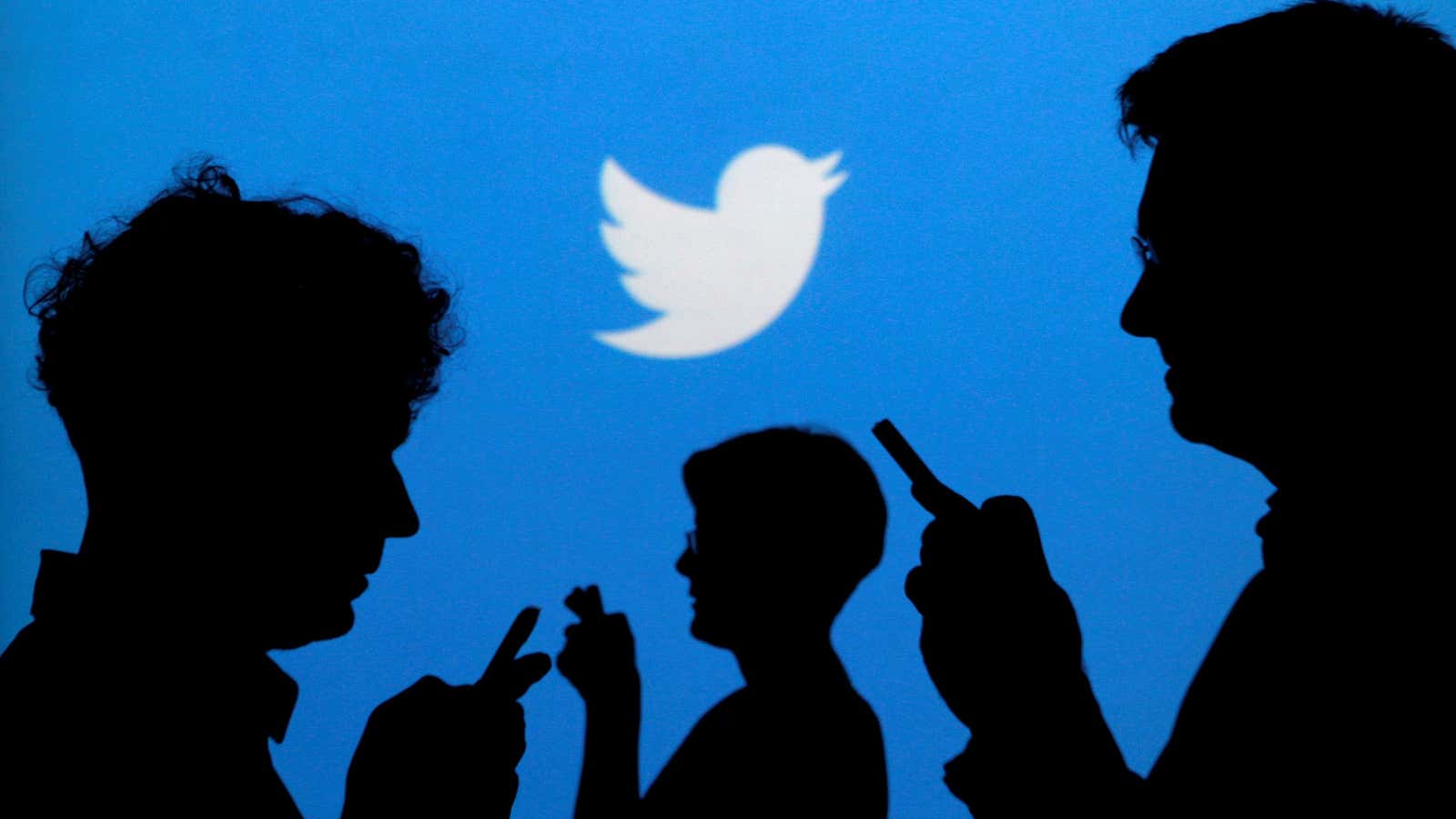Wang Aizhong, a 42-year-old doctor and activist based in the southern Chinese city of Guangzhou, woke one morning to a flurry of verification codes on his phone linked to accounts like Twitter, Chinese question-and-answer site Zhihu, and others.
“Later, on Twitter, I found that my tweets were all deleted,” he wrote on Facebook and on Twitter (link in Chinese) on Sunday (Dec. 16) after he reset his account. “I was unsubscribed from the more than 1,000 accounts I followed.”
Wang, one of the founders of a small urban pro-democracy group, immediately suspected the Chinese government. “The Chinese authorities must have intercepted the verification code to invade my Twitter through my mobile phone number,” he said. Quartz couldn’t immediately reach Wang.
Wang’s account comes as other rights groups have noticed interference with tweets connected with Chinese dissidents or criticism of China recently. In a November 2018 report, Human Rights Watch China said that a crackdown on speech on Chinese social media since last month extended to Twitter as well, even though it is blocked in China and only a small number of people use it with the help of VPN services that help bypass the Great Firewall. China’s policing of its internet has become more severe in recent years.
“Authorities have detained or summoned dozens or more Twitter users, forcing them to delete sensitive tweets or close their accounts,” wrote HRW researcher Yaqiu Wang. “In some cases, authorities appear to have hacked accounts themselves.”
Since September Yaxue Cao, founder and editor of ChangeChina.org, a platform focused on China’s human rights violations, has been collecting and translating tweets from people harassed by Chinese authorities over their Twitter use. They include tweets from Jinnan, a Hui Muslim poet, known as An Ran, who wrote up and tweeted a transcript of his police interrogation after they ordered him to delete his Twitter account.
Cao also tweeted about Wang’s situation.
Wang Aizhong was one of the people behind the Southern Street Movement that emerged in southern Chinese cities, mainly Guangzhou and Shenzhen. Local citizens and activists who connected online would gather in public places, generally over the weekend, and photograph themselves holding a banner that said (link in Chinese): “Abolish the Communist Party and establish a democratic China.” They would then post the photos online. The first such event took place in 2010. In 2014, he was detained ahead of the 25th anniversary of the 1989 Tiananmen Square demonstrations.
Human Rights Watch China researcher Yaqiu Wang believes that the Chinese government is not just trying to stop current political dissidence, but also to erase all previous remnants of it.
“The government’s recent attention to Twitter–absent any protests or other social events organized via Twitter as a trigger–signals a new level of suppression of free speech under President Xi Jinping’s repressive rule… Some of the tweets authorities pressured Twitter users to delete were posted years ago; few would have viewed the tweets had they remained.”
